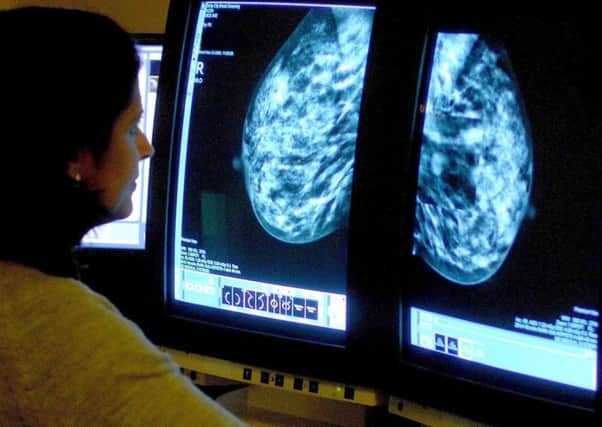Stark rise in the number of cancer diagnoses over 20 years


Between 2011 and 2013 there were 603 cases diagnosed out of every 100,000 people living in Britain - this compares to 540 per 100,000 people between 1993 and 1995.
In the last decade alone, incidence rates in Yorkshire and the Humber, have increased 5 per cent - from 596 per 100,000 people in 2001-2003 to 628 per 100,000 people in 2011-2013.
Advertisement
Hide AdAdvertisement
Hide AdEvery year, 29,500 people are diagnosed with cancer in Yorkshire and the Humber - the equivalent of 81 a day.
But the charity said that even though the chances of getting cancer have increased, the chances of surviving the disease have also climbed.
Earlier diagnosis, screening programmes, better tests and treatments have all led to the chances of surviving cancer doubling over the last 40 years.
“People are living longer so more people are getting cancer,” said Nick Ormiston-Smith, Cancer Research UK’s head of statistical information.
Advertisement
Hide AdAdvertisement
Hide Ad“But the good news is more people are surviving their cancer.
“There’s still a huge variation in survival between different cancer types and there’s a lot of work to do to reach Cancer Research UK’s ambition for three in four patients to survive their disease by 2034.”
In 2013 there were about 352,200 people diagnosed with cancer across the UK - with 179,000 men diagnosed with the disease compared to 173,000 women.
Professor Peter Johnson, the charity’s chief clinician, said: “People often think cancer is down to their genes or just bad luck. Although genes do play a role there are still many things people can do to reduce their cancer risk. The most important is to not smoke. Most people know smoking causes lung cancer, but it’s also linked to at least 13 other types.
Advertisement
Hide AdAdvertisement
Hide Ad“We also know that maintaining a healthy body weight, exercising and eating a healthy balanced diet is important.
“There is no guarantee against cancer but there are things we can do to make us less likely to get it, and things that the Government can do help us to make the right choices and protect future generations.”
Yesterday The Yorkshire Post reported on a potentially revolutionary therapy that trains the immune system to attack cancer.
American researchers have reported “extraordinary” results in early trials involving terminally-ill patients.
Advertisement
Hide AdAdvertisement
Hide AdIn one study 94 per cent of participants with acute lymphoblastic leukaemia (ALL) saw their symptoms vanish completely.
Patients with other blood cancers saw response rates greater than 80 per cent, with more than half experiencing complete remission.
The technique involves removing immune cells called T-cells from patients, tagging them with “receptor” molecules that target cancer, and infusing them back in the body.
Scientists screened genetically engineered mice for the targeting molecules, known as chimeric antigen receptors or Cars. Once attached to the T-cells, they reduce the chances of the cancer being able to shield itself from the immune system.
Advertisement
Hide AdAdvertisement
Hide AdLead scientist Professor Stanley Riddell, from the Fred Hutchinson Cancer Research Center in Seattle, said: “This is unprecedented in medicine to be honest, to get response rates in this range in these very advanced patients.”